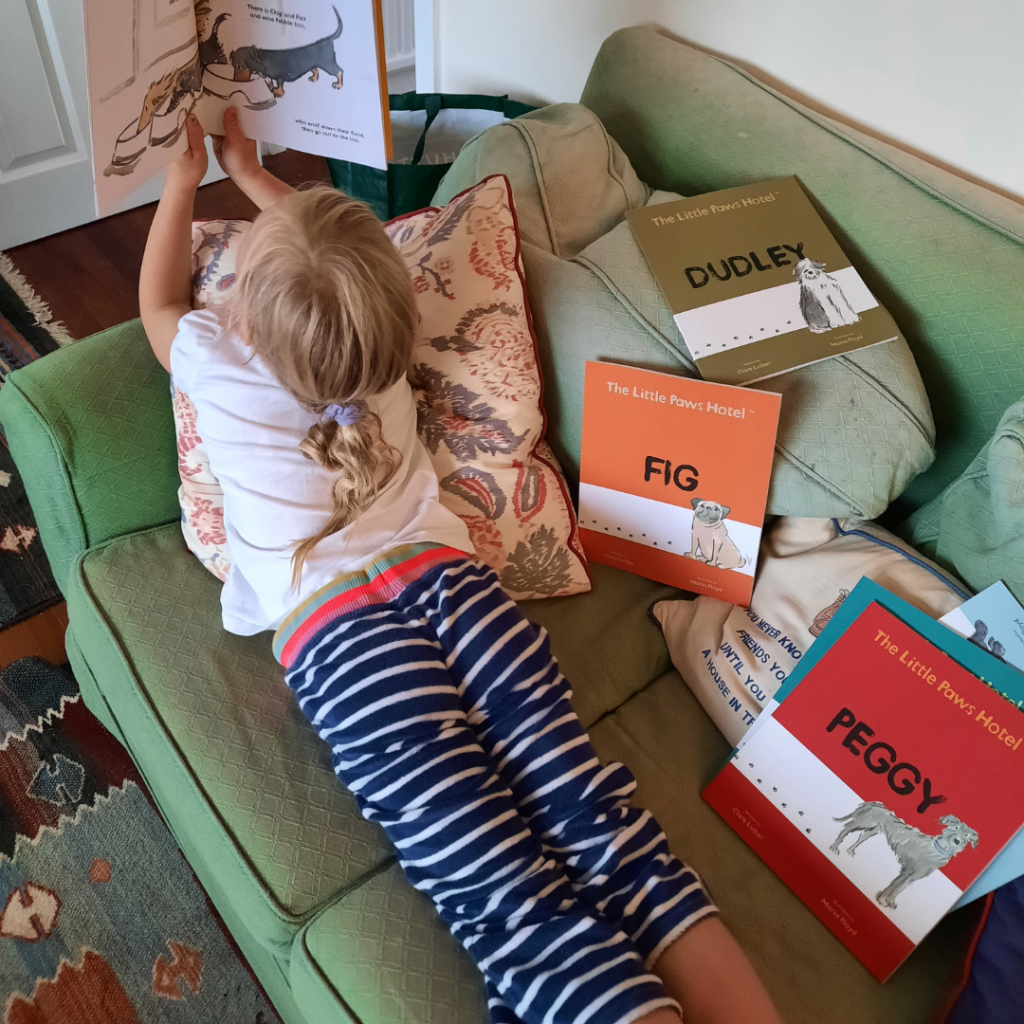Guest Blog: Reading stories and the impact on children's wellbeing
3rd February, 2022
Children’s author Clare Luther shares her insights on the positive impact of reading stories together
Children’s Mental Health Week is this year taking place between the 7th and 13th February, and is an awareness week that shares a spotlight on the importance of children and young people’s mental health.
Parents have a vitally important, if not crucial, role to play in supporting their child’s emotional well-being and mental health. Yet some may feel unsure or uncertain of how to go about this.
You may question when might be the best time to talk with your young child about how they are feeling, or feel uncomfortable about bringing a situation up again after it has passed, or lack confidence in finding the right words to get a meaningful conversation started.
It is usual to have these thoughts and concerns, and please be reassured that perfect parenting does not exist. Often the answer is not as complex as you think, and offering some of your undivided attention to sit with your child and help them process and regulate their emotions is what your child needs the most.

A great place to start can be through sharing a story together. When you sit with your child, side by side, reading a story together, it encourages connection between the two of you, offering opportunity to:
1. explore big emotions – provide your child with a safe place and space to connect, care and listen; to normalise, validate and acknowledge.
2. learn about empathy – help show your child how others may or may not feel in certain situations, and how they might be able to come alongside others to help support them.
3. get meaningful conversations started – support your child to draw on their own experience and relate to the story in a personal way.
Use stories to help your child explore their emotions.
Children can sense when their parents are available for them or not. Even if your words don’t say it, your facial expressions and body language do. One of the most important things you can do to have a positive impact on your child’s development, self-esteem and confidence is spend time with them.
Creating a regular, scheduled time of calm in their daily routine to read a story together, aloud, helps create a bond between the two of you and builds trust.
Do not underestimate how important this time is, however short it may feel to you. It boosts the feeling of intimacy, helps your child feel close to you, promotes feelings of love and attention, and encourages positive growth and development.
Use stories to teach your child about empathy
Reading a book together is a great way to help your young child understand something without necessarily having experienced it themselves. Evidence strongly suggests that reading helps children build emotional intelligence and increases empathy to better understand others.
Children learn about empathy from watching you as their parent, as well as how you empathise with them. When you empathise with your young child it builds connection and trust by acknowledging their feelings, letting them know you are thankful they have told you how they feel, showing an interest in what they are saying, listening to them, encouraging them, and being supportive i.e. “I’m here for you” “Let’s think about what might help?” “Tell me about it” “I understand”.
Whilst some children may not have been through some of the feelings and thoughts in the book you are reading, the stories show how being a friend to someone or showing kindness can make a huge difference to someone’s situation.
Use stories to get meaningful conversations started with your child.
Stories provide a platform to encourage conversations with your child from an early age about their thoughts and feelings in a relaxed and informal way. It is important they understand there are no good or bad emotions, that feelings are part of everyday life, and different children have different reactions or responses to certain situations.
Providing a time for you and your child to connect, explore, empathise and talk together is an invaluable way to supporting your child’s mental health and well-being.
Reading a story aloud together also gives you an opportunity to model to your child how your feelings can affect you too.
You can talk with your child about when you have felt like the main character or how you have acted like one of the friends. It is a hugely positive and reassuring experience for your child to hear you:
1. name your feelings and say that you can sometimes feel sad, worried, anxious, upset etc.
2. share with them how you have helped someone else by supporting them in some way such as using kinds words, listening and offering a helping hand
3. suggest one thing that has helped you work through issues/ feelings/ worries.

Visit www.head2heartbooks.com to find out more about Clare Luther and her stories, The Little Paws Hotel series, which thoughtfully address big emotions (separation anxiety, fear of new experiences, perfectionism, being bullied, being the bully and bereavement and grief).
All scripts are well-researched and crafted alongside psychologists (clinical and educational), bereavement counsellors, teachers, parents, care-givers and the children themselves before going to print.
Enjoy Education is a private limited company registered in England & Wales Company No: 5943726
Registered office: 1 Relton Mews, London, SW7 1ET VAT Reg. No. GB: 930 9121 44
© 2025 Enjoy Education Ltd, London UK
A Leading Education Consultancy. All Rights Reserved | Privacy & Cookies Policy